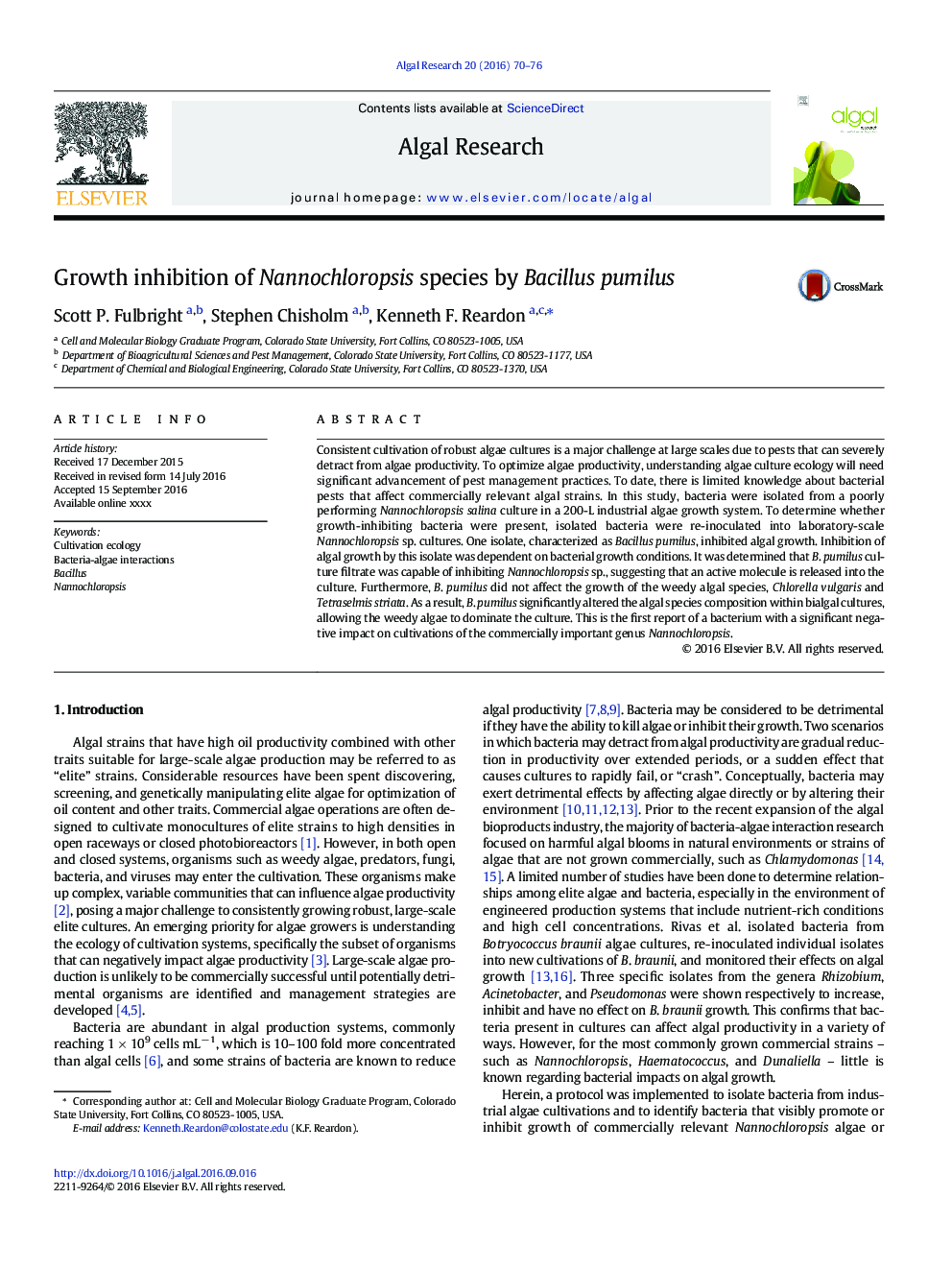| Article ID | Journal | Published Year | Pages | File Type |
|---|---|---|---|---|
| 5478579 | Algal Research | 2016 | 7 Pages |
Abstract
Consistent cultivation of robust algae cultures is a major challenge at large scales due to pests that can severely detract from algae productivity. To optimize algae productivity, understanding algae culture ecology will need significant advancement of pest management practices. To date, there is limited knowledge about bacterial pests that affect commercially relevant algal strains. In this study, bacteria were isolated from a poorly performing Nannochloropsis salina culture in a 200-L industrial algae growth system. To determine whether growth-inhibiting bacteria were present, isolated bacteria were re-inoculated into laboratory-scale Nannochloropsis sp. cultures. One isolate, characterized as Bacillus pumilus, inhibited algal growth. Inhibition of algal growth by this isolate was dependent on bacterial growth conditions. It was determined that B. pumilus culture filtrate was capable of inhibiting Nannochloropsis sp., suggesting that an active molecule is released into the culture. Furthermore, B. pumilus did not affect the growth of the weedy algal species, Chlorella vulgaris and Tetraselmis striata. As a result, B. pumilus significantly altered the algal species composition within bialgal cultures, allowing the weedy algae to dominate the culture. This is the first report of a bacterium with a significant negative impact on cultivations of the commercially important genus Nannochloropsis.
Keywords
Related Topics
Physical Sciences and Engineering
Energy
Renewable Energy, Sustainability and the Environment
Authors
Scott P. Fulbright, Stephen Chisholm, Kenneth F. Reardon,
